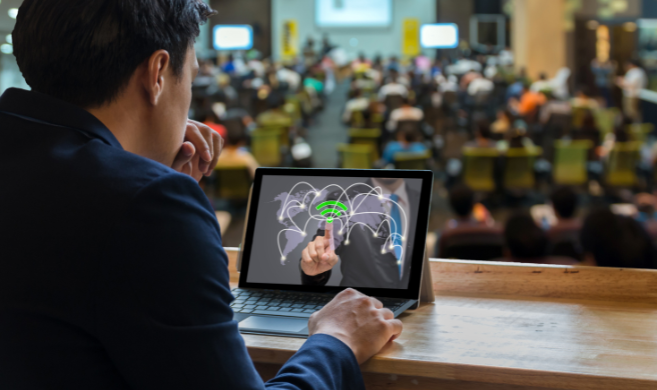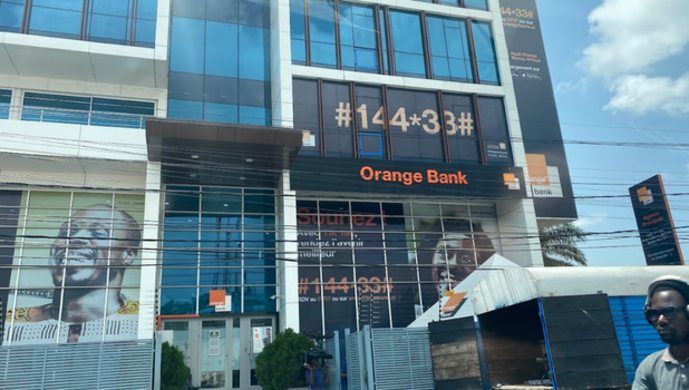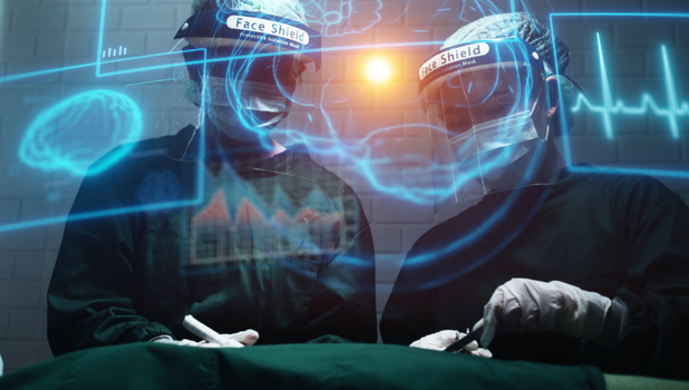Microbusinesses (MBs), classified as small or medium enterprises with fewer than 10 employees, have significantly less resources compared to larger organizations. Yet, these small teams make up 93% of all businesses in Europe, according to the European Commission.
Not all microbusiness owner-managers are able to embrace digital transformations – the use of social media, cloud computing, mobile, analytics, AI, and other emerging tech to make important changes to a business. These owners maintain their business in more traditional ways because they lack finances, internal skills, or time.
Networking events and awareness programs can also foster a community of microbusinesses interested in digital transformation and inspire more owner-managers to participate in upskilling programs.
By encouraging and supporting technological and digital transformation efforts, MBs have the potential to add over 2.3 trillion USD to global GDP by 2024. When their owner-managers benefit, so do entire nations… which is why Ireland is extending support in multiple ways.
Taking the lead from Ireland
For the owners of MBs, doing anything new may be intimidating. Often, they lack the time and resources to make big changes within their businesses due to a lack of confidence or cognitive limitations, or they struggle with decision-making when investing in new technologies.
However, Irish MB owner-managers (MBOMs) have been found to adopt digital technologies faster and perform better than their UK or US counterparts. This is likely because Irish policymakers encourage and incentivize experimentation and innovation.
Most existing research on digital transformations is centered around larger companies. In our research, we explored the mindsets, experiences, and practices of MBOMs in Ireland to unpack the mechanisms for orchestrating digital transformation efforts. We found that the MB owner-managers readiness for digital transformation created three archetypes and identified the learning mechanisms commonly used by each archetype.
Readiness for digital transformation at the personal level
Understanding the readiness of MB owner-managers for digital transformation is essential to understand how their beliefs, skills, and resources influence their efforts. These people need two types of mindsets for digital transformation readiness: a growth-oriented mindset and a technology-oriented mindset.
Individuals with a growth-oriented mindset have implicit belief in their personal capacity for learning and development, believing their basic attributes can be improved over time. They are open to feedback, embrace innovation and collaborate with others. They seek out opportunities to enhance their competence. On the other hand, those with a fixed mindset believe that their basic attributes are unchangeable, seek to validate their existing competence, and resist feedback.
There were notable disparities along the spectrum of digital transformation readiness among the owner-managers we interviewed.
Individuals with a technology-oriented mindset have implicit beliefs regarding the use of technology that encompass their needs, motivations, and attitudes toward technology adoption and use. Some people may have a strong inclination towards proactive use of emerging technologies, while others are more cautious.
As with the growth mindset, there were notable disparities in digital transformation readiness among the participating MBOMs’ technology mindset.
We identified three significant archetypes based on their growth and technology mindsets. These archetypes reflect varying degrees of readiness and approach to digital transformation efforts.
- Champion Digital Transformers: With a high-growth mindset and a proactive technology mindset, they actively accept mistakes, grow from past experiences, and are unafraid to experiment with new technologies. They’re highly motivated to learn and adapt and initiate the learning process independently.
- Emerging Digital Transformers: With a medium-growth mindset and a reactive technology mindset, they aim to learn from past experiences but may not seek out new technologies. Their motivations are often conditional on contextual needs.
- Aspiring Digital Transformers: With lower levels of growth mindset and a passive technology mindset, they are the least motivated to reach uncertain goals, often relying on external incentives and expertise. Assimilating to new digital technologies is challenging.
These archetypes provide valuable insight into the diverse approaches taken by microbusiness owner-managers when navigating the complexities of digital transformation.
Improving digital transformation efforts
We identified three learning mechanisms that microbusiness owner-managers employ to improve their learning capabilities. These mechanisms play a crucial role in managing and sustaining ongoing digital transformation efforts.
- Exposure Learning Mechanism: Vicarious learning through proactive or accidental exposure to various digital transformation-related learning instances. This approach has minimal impact but reduces initial inhibitions towards adopting new methods and technologies. It is also used by all three types of transformers.
- Experience Learning Mechanism: This mechanism involves immersive first-hand learning experiences undertaken through a planned or chance learning initiative. It has a significant impact on the learning capability of owner-managers, helping them develop management competencies and facilitating the initiation and management of digital transformation efforts. Champion Digital Transformers largely use this mechanism, as well as some Emerging Digital Transformers.
- Expertise Learning Mechanism: This mechanism involves learning from an expert or mentor through formal training programs or problem-solving activities that provide guidance, knowledge, and skills. It plays a crucial role in enhancing microbusiness owner-managers’ learning capabilities. This is mainly adopted by Champion Digital Transformers.
For digital transformation to succeed, it often requires a clear strategy, a culture that encourages innovation and collaboration, and effective digital leadership. We found that tailored support, community building, mentorship and continuous engagement foster digital transformation among microbusinesses in Ireland. These strategies can contribute to the success and sustainability of digital transformation initiatives for microbusinesses around the world.
Follow-up on the impact of the research
As a follow-up, we shared our insights with policy makers and implementers at Enterprise Ireland. Our research findings are now having a tangible impact on digital transformation policy for small and medium-sized enterprises (SMEs) in Ireland. You can see some of our recommendations reflected in recent Irish government initiatives related to digital knowledge support to SMEs.
Additionally, there are grassroots initiatives leveraging our findings. LeanBPI, a prominent provider of digital support to micro-enterprises in Ireland, has used our research to launch a personalized digital readiness assessment for the micro-business sector.
Working with local enterprise offices in Ireland, this assessment has been introduced as a policy innovation to better assess and design personalized business solutions for the digital transformation needs of micro-businesses.
Furthermore, LeanBPI has established a knowledge network called Digital Connect, which is based on the concept proposed in our paper. This network facilitates peer-to-peer learning in the digital space, with monthly meetings to share digital transformation experiences and serve as an informal mentoring platform.









